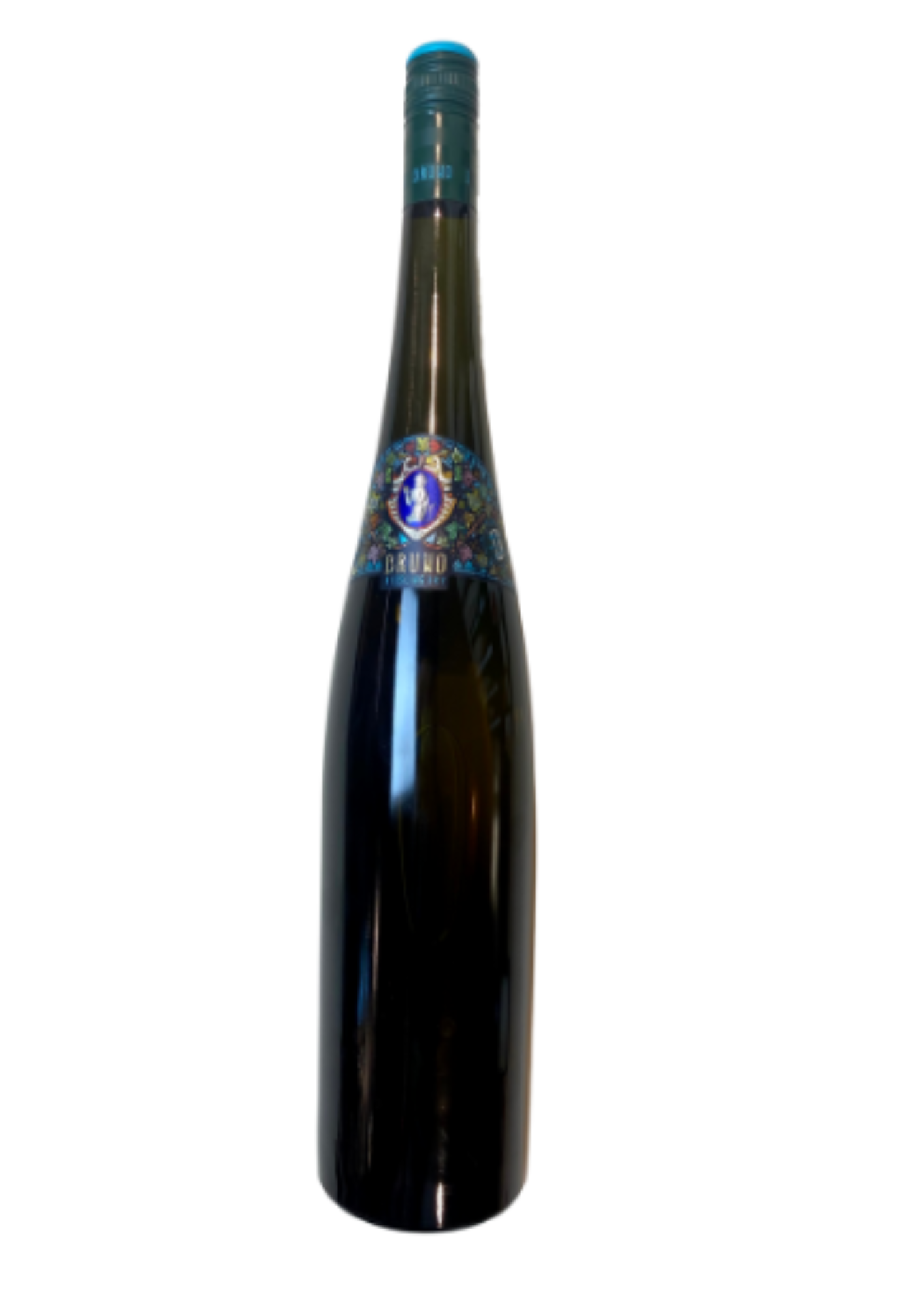 Image 1 of 1
Image 1 of 1


Karthäuserhof Riesling Bruno Magnum 2019
The historic Karthauserhof estate is located just before the confluence of the Ruwer and Mosel rivers, nestled along a side valley adjacent to the small village of Eitelsbach. Recent findings indicate that the spot was a settlement practicing viticulture as early as Roman times. Named Karthauserhof, or "Farm of the Carthusians," it was founded officially as a Carthusian monastery in the 11th century.
In 1811, Napoleon secularized the region and the property was auctioned off in Paris. It was bought by Valentin Leonardy and, miraculously, through the trials and tribulations of over 200 years, has remained in the same family. The Tyrells inherited Karthauserhof in the mid-20th century with their eldest son, Christoph, running all operations in the vineyard and cellar until 2012. 2015 marked the beginning of a new period in the estate’s history, as Ludwig Breiling, the legendary winemaker behind the successful 1990s and outstanding vintages of 2000 – 2009, returned from his absence to oversee all work in the winery and vineyards. To complete his dream team, he called upon Sascha Dannhauser to take on the role of head winemaker. In addition to working alongside Ludwig for over 20 years, Dannhauser was a key asset to Christian Vogt during his tenure at the estate.
The single-vineyard estate makes wines exclusively from the Karthauserhofberg vineyard. They use no pesticides, instead preferring pheromones, which prevent insect pests from reproducing. The 19 hectares of vineyards are planted almost entirely to Riesling on original rootstock. While the estate produces the classic Pradikat wines, they have long been ahead of the curve and renowned for their dry Rieslings, an area of increasing popularity among Riesling lovers. In fact, the majority of their production is dry wines, including a Grosses Gewachs that was introduced with the 2009 vintage.
Value: $60
The historic Karthauserhof estate is located just before the confluence of the Ruwer and Mosel rivers, nestled along a side valley adjacent to the small village of Eitelsbach. Recent findings indicate that the spot was a settlement practicing viticulture as early as Roman times. Named Karthauserhof, or "Farm of the Carthusians," it was founded officially as a Carthusian monastery in the 11th century.
In 1811, Napoleon secularized the region and the property was auctioned off in Paris. It was bought by Valentin Leonardy and, miraculously, through the trials and tribulations of over 200 years, has remained in the same family. The Tyrells inherited Karthauserhof in the mid-20th century with their eldest son, Christoph, running all operations in the vineyard and cellar until 2012. 2015 marked the beginning of a new period in the estate’s history, as Ludwig Breiling, the legendary winemaker behind the successful 1990s and outstanding vintages of 2000 – 2009, returned from his absence to oversee all work in the winery and vineyards. To complete his dream team, he called upon Sascha Dannhauser to take on the role of head winemaker. In addition to working alongside Ludwig for over 20 years, Dannhauser was a key asset to Christian Vogt during his tenure at the estate.
The single-vineyard estate makes wines exclusively from the Karthauserhofberg vineyard. They use no pesticides, instead preferring pheromones, which prevent insect pests from reproducing. The 19 hectares of vineyards are planted almost entirely to Riesling on original rootstock. While the estate produces the classic Pradikat wines, they have long been ahead of the curve and renowned for their dry Rieslings, an area of increasing popularity among Riesling lovers. In fact, the majority of their production is dry wines, including a Grosses Gewachs that was introduced with the 2009 vintage.
Value: $60
